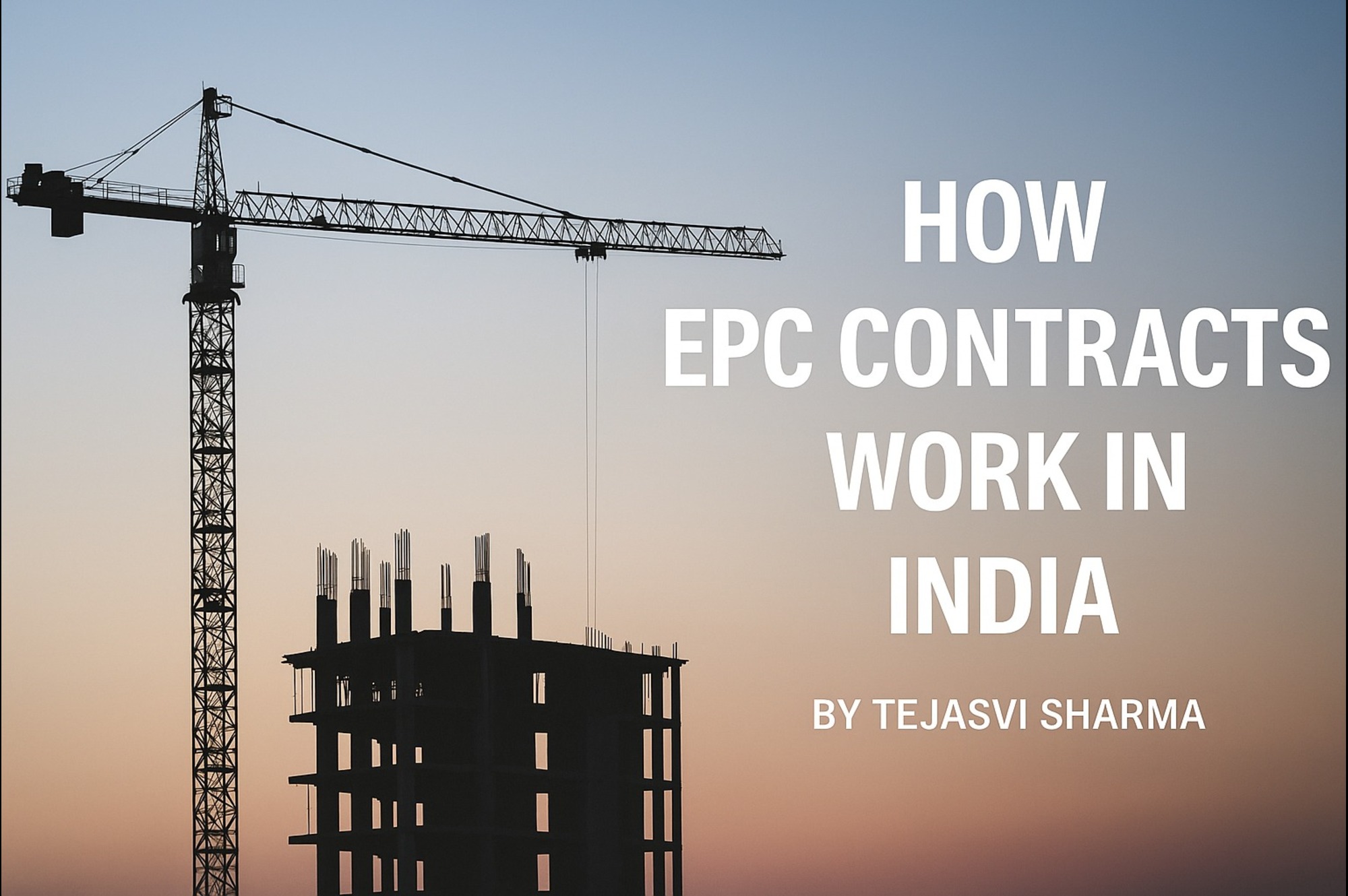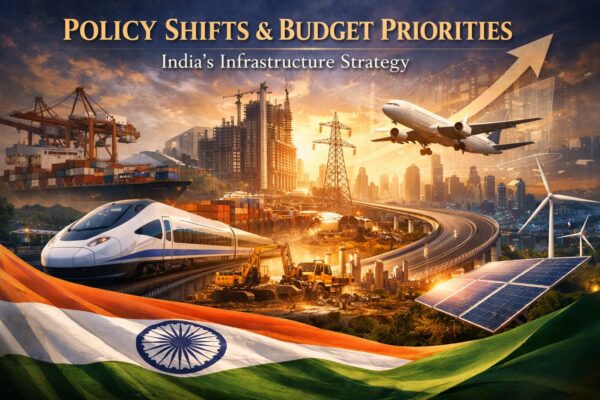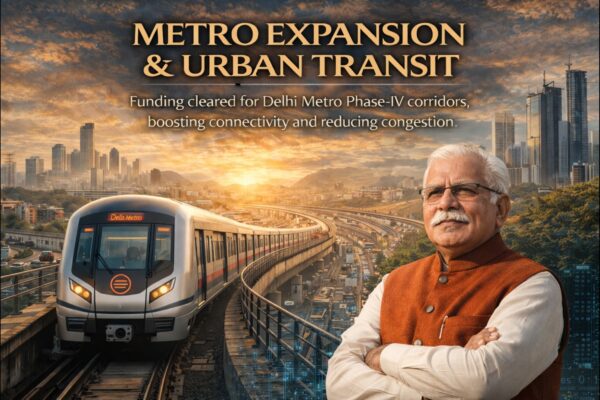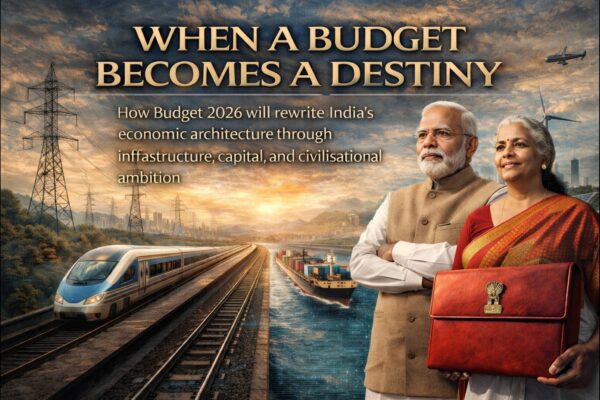How EPC contracts work in India: A framework for nation-building
by Tejasvi Sharma, Editor-in-Chief, EPC World
As India charts a fast-paced trajectory of infrastructure development, from expressway projects slicing through hinterlands to metro construction weaving through urban landscapes, the model of project execution has undergone significant evolution. At the heart of this transformation lies the Engineering, Procurement, and Construction (EPC) contract, a mechanism that has emerged as a cornerstone in India’s infrastructure execution ecosystem.
EPC contracts in India, also known as turnkey contracts, are comprehensive project delivery systems where the contractor is responsible for delivering an entire project—from design to commissioning. The contractor ensures that the infrastructure project meets performance standards, is delivered within agreed timelines, and remains within the stipulated budget.
The core structure of an EPC Contract
An EPC contract in India typically includes three phases:
- Engineering: Detailed design and technical specifications based on client requirements.
- Procurement: Sourcing and delivery of all project materials, equipment, and services.
- Construction: Physical execution, testing, and commissioning of the project until it is ready for use.
This model enables single-point accountability for the entire construction project, reducing risks for the employer and streamlining timelines for delivery.
Legal and Commercial Framework
EPC contracts in India are governed by the Indian Contract Act, 1872 and often supplemented by FIDIC-based clauses. These contracts typically include stringent terms on liquidated damages, performance guarantees, force majeure, and dispute resolution—often through arbitration.
The pricing model is generally lump sum, meaning the contractor commits to completing the project within a pre-agreed cost, regardless of actual expenses incurred. Any delay in execution usually attracts liquidated damages, ranging from 0.1% to 1% of the contract value per week, up to a defined cap.
Risk allocation in Indian infrastructure projects
Risk allocation is central to EPC contracting. In India’s complex regulatory and developmental environment, risks are distributed as follows:
- Employers (government or PSU) bear the risk of land acquisition, environmental clearances, and policy changes.
- Contractors absorb the risk of construction delays, design errors, material defects, and site safety.
To avoid project delays, many government infrastructure contracts now include risk mitigation clauses, ensuring faster project execution, especially under initiatives like Gati Shakti Mission and the National Infrastructure Pipeline (NIP).
Sectoral use and government adoption
EPC contracts are widely used in India across sectors such as:
- Highway construction projects (e.g. by NHAI and state PWDs)
- Power plant construction
- Smart city development
- Urban mass transit and metro projects
- Water and waste treatment projects
Unlike PPP models or BOT (Build-Operate-Transfer) projects, where the contractor also finances the infrastructure, EPC contracts are government-funded, ensuring quicker implementation and broader participation from private construction firms.
For example, the Bharatmala Pariyojana—India’s flagship highway programme—relies heavily on EPC contracts to expedite project delivery with assured funding and clear contractual obligations.
Challenges in EPC execution
Despite its efficiency, the EPC model in India faces certain challenges:
- Delayed payments from public authorities
- Overly rigid contractual terms that discourage innovation
- Limited flexibility in project design, as specifications are often tightly defined
Additionally, cost escalation, especially due to inflation in material prices and delays in environmental approvals, can severely impact contractor margins. These issues are now being addressed via Hybrid EPC Models and Early Contractor Involvement (ECI) to enable better alignment between stakeholders.
The future of EPC contracts in India
India is poised to invest over $1.4 trillion in infrastructure over the next decade under the National Infrastructure Pipeline, spanning transportation infrastructure, urban development, renewable energy projects, and logistics parks. This growth will be significantly driven by well-structured EPC contracts that ensure timely and transparent project execution.
Digital transformation is also making inroads into EPC workflows. Technologies like Building Information Modelling (BIM), AI in construction, and project monitoring systems are now becoming integral to EPC delivery models.
Conclusion
The EPC contracting model offers India a robust mechanism to deliver complex infrastructure efficiently. As we transition toward an infrastructure-led economy, refining EPC frameworks to improve risk-sharing, enhance payment mechanisms, and integrate digital tools will be critical.
In the evolving infrastructure landscape, the EPC contract is not merely a tool of execution—it is a strategic instrument of nation-building. As India paves new roads, powers new cities, and connects regions with bridges and rails, the EPC model will remain central to translating blueprints into built realities.
Tags
Related Posts
















